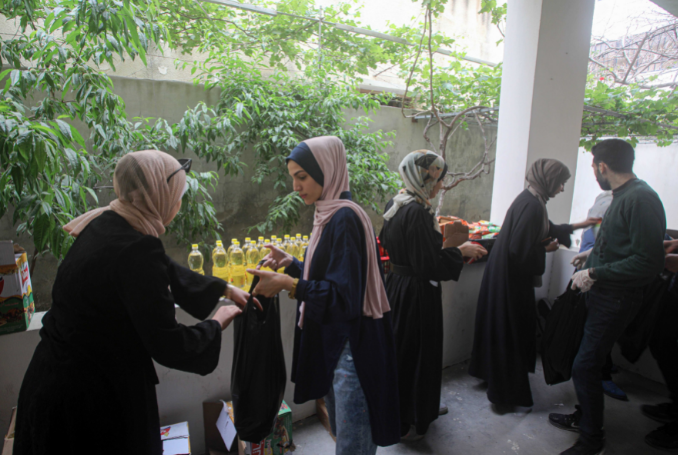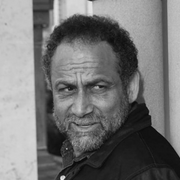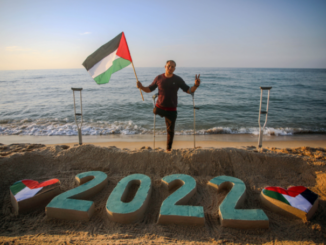
By Haidar Eid 
When my refugee students ask me about the meaning of “Orientalism,” I tell them to look at Israel. Prejudice, fantasies, and racist clichés purveyed by Zionism about Palestinians and Arabs and colonial abuse of power and domination by one self-proclaimed superior culture over another.
Like the inhumane apartheid system before it, apartheid Israel is unable to understand Palestinian suffering and the nature of its oppression of those living in Gaza. This is part of what the late Edward Said calls “blaming the victim.”
Nothing whatsoever justifies the theft of other people’s lands and intimate memories. This is a crime against humanity; it is immoral and unethical. This is why settler colonialism in Palestine should be condemned. it is time for the international community to declare all those organizations that support settlements and settler colonialism in Palestine illegal.
In his groundbreaking Politics of Dispossession, reiterating Ghassan Kanafani’s argument in Returning to Haifa, Edward Said states very convincingly:
“The question to be asked is how long can the history of anti-Semitism and the Holocaust in particular be used as a fence to exempt Israel from arguments and sanctions against it for its behavior toward the Palestinians, arguments and sanctions that were used against other repressive governments, such as that of South Africa. How long are we going to deny that the cries of the people of Gaza are directly connected to the policies of the Israeli government and not to the cries of the victims of Nazism?” Politics of Dispossession, p172
It is indicative of the official Israeli mindset that the genocidal siege of the Gaza Strip never seemed to register in the Jewish State’s overall strategy. And now we have Benjamin Netanyahu making a triumphant return with his fascist allies, Ben Gvir and Bezalel Smotrich. As far as Israelis or Israeli officials are concerned, Israel withdrew its troops and settlers from Gaza in 2005, leaving Gaza free.
However, it has kept the keys to the crossings separating it from Gaza and has left the last crossing in the hands of its Egyptian allies. As far as Israeli mainstream politicians are concerned, the Palestinians of Gaza are very ungrateful for not accepting the blockade, for resisting it and for demanding their internationally sanctioned rights!
In fact, supported by an international conspiracy of silence, not to say collusion, Israel’s aim is to make us become so habituated to oppression that we cease to feel it as oppression. As simple as that. The so-called international community has decided to remain deaf despite the glaring fact of clause 50 of the 1907 Hague Convention stating unequivocally the international community’s rejection of collective punishment. This was reiterated by the Fourth Geneva Convention in Clause 33 of 1949! As Ajamu Baraka pointed out on his Facebook page during the first days of the Russian attack on Ukraine:
“I embrace “whataboutism” because so-called “whataboutism” is nothing more than critical dialectical thinking that informs the struggle against bourgeois ideological mystification. The ideological responsibility of revolutionary socialists is to reveal what is hidden, denounce what is being silenced and recontextualize the attempts to de-contextualize issues, ideas and practices.”
As if Israel’s blockade of Gaza is not enough, it seems that Palestine’s class character revealed itself in resentment toward the Palestinians of Gaza who are perceived as Hamas supporters and members, and therefore constitute a serious threat to the so-called National project.
As a result, one of the most repeated (Western) questions that we have to deal with is: but what does “lifting the siege” mean?
It basically means the opening of the six crossings, the keys of which are in Israel’s hands, and the flow of all kinds of goods, especially essentials, to and from #Gaza. It means providing Gaza with electricity and clean water, and guaranteeing the freedom of movement of the two million Palestinians of Gaza. It also means the permanent opening of the Rafah crossing.
This is the responsibility of the occupying power, namely Israel. But even this does not meet the minimum basic rights of the Palestinian people, namely freedom, equality, and justice. No normal relations with apartheid Israel should be resumed without the latter complying with International law that guarantees Palestinian basic rights.
One day, like in South Africa, we will have victim impact statements whereby we tell our killers from Benjamin Netanyahu to Gantz to Yair Lipid how they have forever turned our life upside down.

– Haidar Eid is an Associate Professor in the Department of English Literature at the Al-Aqsa University, in the Gaza Strip. He is a research associate at the Center for Asian Studies in Africa at the University of Pretoria. He contributed this article to The Palestine Chronicle.







